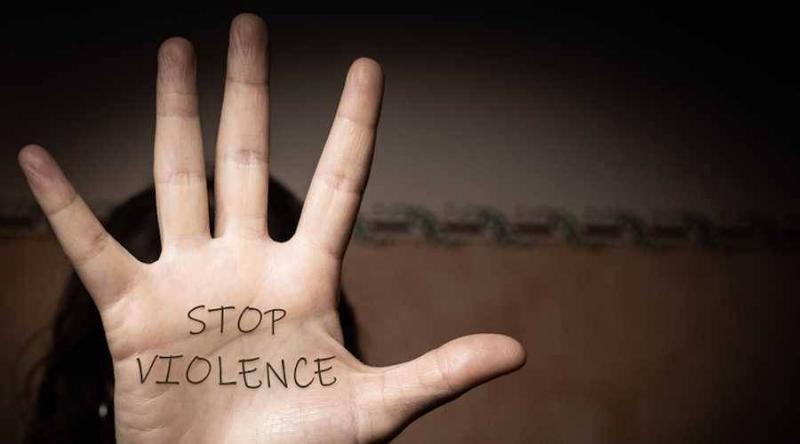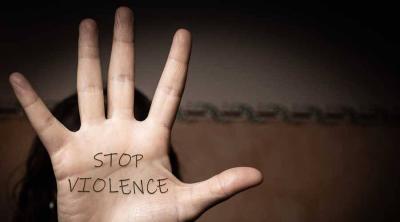Violence against women in Lebanon has worsened over the years for various reasons and in different forms, leading to alarming figures in 2023. The organization "Kafa" alone received 2,676 calls and followed up on 1,210 new cases last year. Calls have increased to strengthen laws related to domestic violence and to provide comprehensive support for victimized women, including legal, psychological, and social services, prompting the proposal of a law aimed at combating violence against women in Lebanon.
Accordingly, "Kafa," in collaboration with MP Paula Yacoubian and other MPs, has submitted a draft law to combat violence against women, coinciding with the airing of the series "Aamal," which addresses real issues highlighting the suffering of women from violence and honor crimes under the cover of customs and traditions. Yacoubian asserted in an interview with "An-Nahar" that "the approval of such legislation would represent a significant victory for women and protect their rights." Regarding the possibility of the law passing in the parliament, she said: "I had previously submitted a proposal to the parliament to lift reservations on the CEDAW agreement and saw their reaction in the council." She emphasized: "I don't believe we will be able to pass this bill quickly; it will take a lot of time and cumulative work."
Yacoubian continued: "These campaigns and awareness programs against violence help us demonstrate the importance of enacting these laws to protect abused women in Lebanon and highlight the importance of having laws that protect women." In a conversation with "An-Nahar," the head of "Kafa Against Violence and Exploitation," Zuya Rouhana, confirmed that "women in Lebanon suffer from various forms of violence, whether in private or public settings. Unfortunately, current legislation is still inadequate in addressing injustices against women and providing the necessary support, whether through protection or through offering services and compensation for damages, among others. It is a comprehensive series that must be implemented through legislation as well as through a set of procedures adopted by the relevant ministries."
Rouhana lamented the lack of women's rights on the priority list of successive councils in parliament or government, considering that "the little that has been achieved was initiated and pressured by civil society, but it has not yet risen to provide complete justice for women, all of which is due to the entrenched patriarchal backgrounds in societal and religious culture controlling the adopted policies." She added: "Here we see that most traditional parties and some MPs we approached have not shown sufficient interest in following up on this law and perhaps other laws related to women and girls that remain in the drawers of the parliament."
She clarified that the significance of this law, if approved by the parliament, is that it will represent a comprehensive policy to combat all forms of violence against women and girls, as it is known that they are the most vulnerable to violence due to the nature of the patriarchal system governing us. Thus, it will provide the general framework that future governments and parliaments should adopt in their policies to combat violence against women, whether by working to abolish all laws that discriminate against women and allow or justify violence against them, or by ensuring their protection and enabling them to access justice.
She stated: "The goal of this law is to protect women and girls from all forms of violence, to punish perpetrators, and to provide compensation for damages. It aims to ensure a woman's right to live with dignity and free from violence in both private and public life. It is a necessary need given the security breakdown and the rise in the number of female homicides in recent times."
**Key Provisions of the Proposal**
Firstly, **Protection**: This manifests in empowering victims to obtain a protection order that distances the perpetrator of violence from them, regardless of whether they filed a complaint, similar to current practices in domestic violence cases, and extends protection to all forms of violence, especially harassment and rape.
Secondly, **Specialization**: Delays in investigations and trials weaken the deterrence of the abuser and diminish the punitive value. Therefore, this law stipulates the assignment of specialized judges and the establishment of specialized courts to ensure swift case resolutions, which impacts public opinion.
Thirdly, **Toughening Penalties**: It is essential in such crimes to move away from justifications that often stem from cultural, social, or religious heritage that tolerates violence against women; thus, it is necessary to amend some provisions of the Penal Code or to toughen the penalties in various laws like the harassment law or the domestic violence law.
Fourthly, **Compensation for Victims**: Psychologically rehabilitating victims and compensating them for the violence they faced is crucial to helping them rebuild their lives. Therefore, it is necessary to establish a fund to support victims funded by the fines imposed on perpetrators (instead of having multiple funds, like a fund for domestic violence victims and a fund for harassment victims, since most victims of these crimes are women and girls. There should be one fund that compensates for all forms of violence committed against them).
Regarding the possibility of monitoring the implementation of the law if it is approved, Rouhana said: "As we worked to monitor the implementation of Law 293/2014 regarding the protection of women from domestic violence, we were able to identify gaps and work on correcting them through amendments made to the law in the parliament in 2020. We will certainly follow up on the implementation of this law if approved, as it will represent an advanced step towards preserving the safety of women and girls and maintaining their dignity, while awaiting the enactment of a civil personal status law that restores women's position within the family and ensures complete equality."
In this context, previous years have seen several attempts to propose laws to combat violence against women in Lebanon. In 2014, civil society organizations and MPs proposed a law to protect women from domestic violence. In 2017, the Lebanese parliament's Administration and Justice Committee approved a draft law for the protection of women from domestic violence. In 2019, women's associations and NGOs proposed a law to combat violence against women. In 2020, a draft law for the protection of women from domestic violence was referred to parliamentary committees for study and discussion.
**Reasons That May Lead to the Failure of the Proposed Law to Combat Violence Against Women in Lebanon**
- **Political Conflicts**: The law against violence towards women in Lebanon may falter due to political conflicts among various factions in the parliament, affecting their ability to reach an agreement on proposed laws.
- **Cultural and Social Pressures**: Laws related to combating violence against women may face opposition from certain segments of society due to traditional cultural and social values that may oppose the law's principles.
- **Religious Pressures**: There may be influence from some religious powers in society on laws against violence towards women, leading to opposition or obstruction of the proposed laws.
- **Delays in Legislation**: The legislative process may be delayed due to lengthy and complex legal procedures, in addition to delays in allocating the necessary time and effort by MPs to address these issues.
- **External Pressures**: Proposed laws may face pressure from external entities, whether from other countries or international organizations, impacting the government and MPs' ability to pass them.
It is important that the law against violence towards women in Lebanon includes a broad definition of violence, imposes strict penalties on perpetrators, and provides support and protection for victims, including psychological, social, and legal support services.




